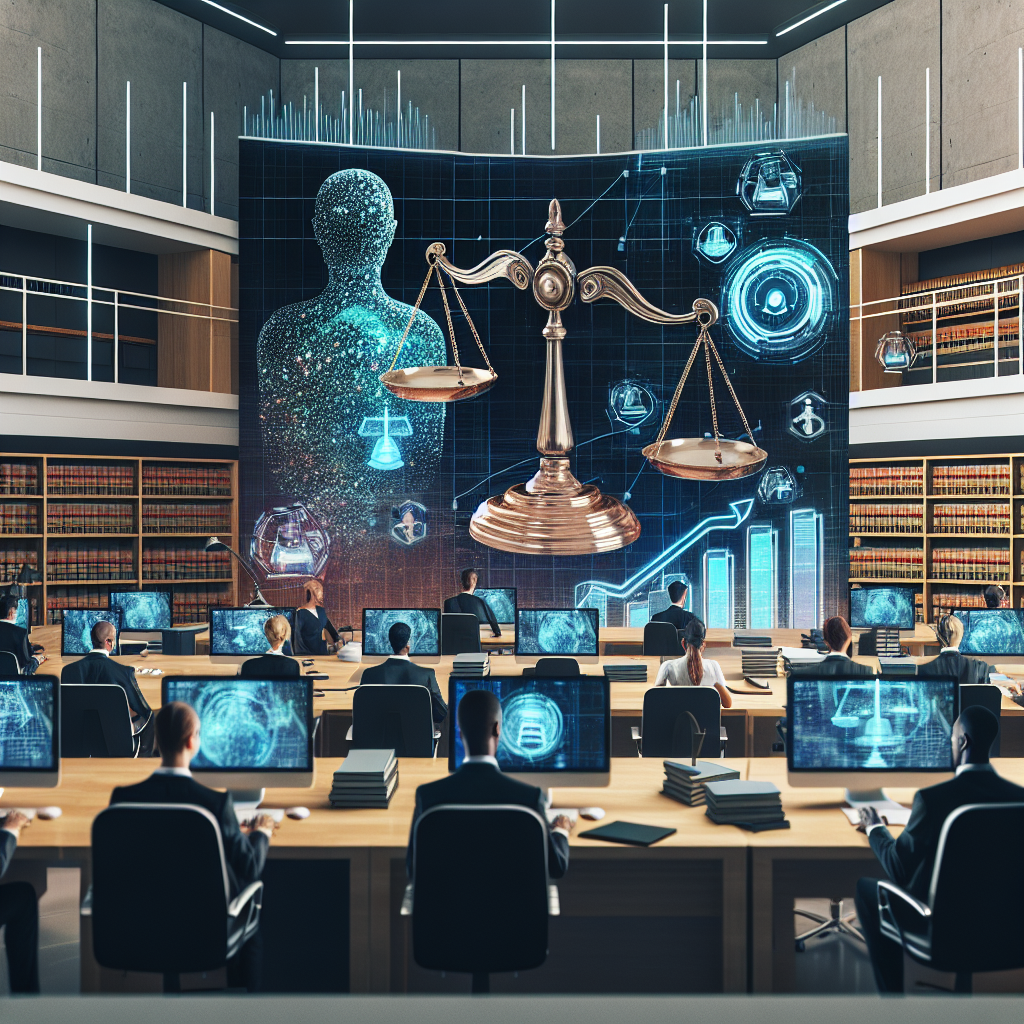Revolutionizing the Legal Industry: How AI is Transforming Legal Services
The legal industry has historically been slow to embrace technological advancements, but with the rise of artificial intelligence (AI), that is quickly changing. AI is transforming legal services in a variety of ways, from automating routine tasks to assisting with complex legal research. This technology is revolutionizing the legal industry, making legal services more efficient, accurate, and accessible than ever before.
AI in the Legal Industry
AI is a branch of computer science that aims to create machines that can simulate human intelligence. In the legal industry, AI is being used to perform a wide range of tasks, from document review and contract analysis to predictive analytics and legal research. By automating these time-consuming tasks, AI is enabling lawyers to focus on more strategic and high-value work.
One of the most common uses of AI in the legal industry is in document review. Traditionally, lawyers would have to manually review thousands of documents to find relevant information for a case. This process was time-consuming and prone to human error. With AI, however, this task can be automated using natural language processing and machine learning algorithms. AI can quickly analyze large volumes of documents, identify key information, and summarize the findings for the lawyer.
AI is also being used to assist with legal research. There is an overwhelming amount of legal information available online, and it can be difficult for lawyers to stay up to date with the latest case law and regulations. AI-powered legal research tools can help lawyers quickly find relevant information, analyze case law trends, and predict outcomes based on historical data. This not only saves time but also helps lawyers make more informed decisions for their clients.
Another area where AI is revolutionizing the legal industry is in contract analysis. Lawyers spend a significant amount of time reviewing and drafting contracts, a task that can be time-consuming and prone to errors. AI-powered contract analysis tools can quickly scan contracts, identify key clauses, and flag potential risks or inconsistencies. This not only speeds up the contract review process but also helps ensure that contracts are thorough and accurate.
The Benefits of AI in the Legal Industry
The benefits of AI in the legal industry are vast. By automating routine tasks, AI is helping lawyers work more efficiently and effectively. This allows them to focus on higher-value work, such as providing strategic advice to clients, negotiating deals, and advocating in court. AI is also helping improve the accuracy of legal services by reducing human error and ensuring that lawyers have access to the most up-to-date information.
In addition to efficiency and accuracy, AI is also making legal services more accessible. Traditionally, legal services have been expensive and reserved for those who can afford high hourly rates. AI-powered legal services are more cost-effective, making legal assistance more affordable for individuals and small businesses. This is especially important in areas such as family law, immigration law, and landlord-tenant disputes, where access to legal services can have a significant impact on people’s lives.
AI is also helping to democratize the legal industry by improving access to justice for marginalized communities. For example, chatbots powered by AI can provide legal information and guidance to individuals who cannot afford a lawyer. These chatbots can help individuals understand their rights, access legal resources, and navigate the legal system. This not only empowers individuals to advocate for themselves but also helps reduce the backlog in the court system.
Frequently Asked Questions About AI in the Legal Industry
Q: How is AI being used in the legal industry?
A: AI is being used in the legal industry to automate routine tasks, assist with legal research, and analyze contracts. This technology is helping lawyers work more efficiently, accurately, and affordably.
Q: Will AI replace lawyers?
A: AI is not replacing lawyers but rather augmenting their capabilities. While AI can perform certain tasks more quickly and accurately than humans, lawyers still play a critical role in providing strategic advice, advocating for clients, and making ethical decisions.
Q: Is AI secure and reliable for legal services?
A: AI-powered legal services are secure and reliable, as long as proper data security measures are in place. It is important to work with reputable AI providers and ensure that data is encrypted and protected from unauthorized access.
Q: How can I incorporate AI into my legal practice?
A: To incorporate AI into your legal practice, start by identifying the tasks that can be automated or streamlined using AI. There are many AI-powered legal tools available on the market, so do your research and choose the ones that best fit your practice needs.
Q: What are the ethical implications of using AI in the legal industry?
A: The use of AI in the legal industry raises ethical considerations, such as data privacy, bias in algorithms, and accountability for decisions made by AI. It is important for lawyers to be aware of these ethical issues and ensure that AI is being used in a responsible and transparent manner.
In conclusion, AI is revolutionizing the legal industry by transforming legal services in a variety of ways. From automating routine tasks to assisting with legal research and contract analysis, AI is helping lawyers work more efficiently, accurately, and affordably. This technology is making legal services more accessible and democratizing the legal industry. While there are ethical considerations to be aware of, the benefits of AI in the legal industry are vast, and the future of legal services looks more efficient and effective than ever before.
